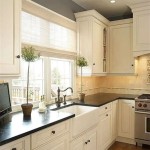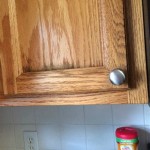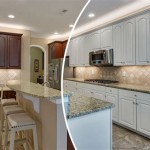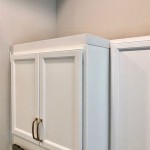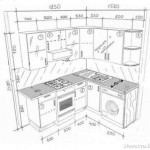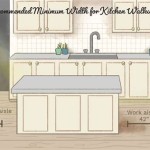Small Turntables for Kitchen Cabinets: Optimizing Space and Accessibility
Small turntables, often referred to as lazy Susans, are invaluable tools for enhancing organization and accessibility within kitchen cabinets. These rotating platforms maximize storage space, particularly in hard-to-reach areas, and provide a convenient means of accessing frequently used items. Integrating small turntables into kitchen cabinet layouts can significantly improve efficiency and streamline meal preparation processes. This article will explore the key benefits, types, selection criteria, and installation considerations related to small turntables designed for kitchen cabinets.
Benefits of Incorporating Small Turntables
The primary advantage of using small turntables in kitchen cabinets lies in their ability to optimize storage capacity. Corner cabinets, often deep and awkwardly shaped, are notoriously difficult to manage. Items stored at the back are easily forgotten and challenging to retrieve. A turntable effectively addresses this problem by allowing users to rotate the entire contents of the cabinet, bringing items into view and within easy reach. This eliminates the need to rummage through the cabinet, minimizing the risk of knocking over other items and saving time.
Beyond space optimization, turntables contribute to improved organization. By grouping similar items together on a turntable – spices, baking ingredients, condiments – users can quickly locate what they need. This systematic approach reduces clutter and promotes a more efficient workflow in the kitchen. The visual accessibility afforded by a turntable also helps to prevent the duplication of purchases, as users are more aware of what they already have on hand. This can lead to cost savings over time.
Furthermore, turntables enhance accessibility, especially for individuals with limited mobility or those who find it difficult to reach into deep cabinets. The rotating mechanism allows users to access items without having to stretch or bend excessively. This is particularly beneficial for elderly individuals or those with physical limitations. The ease of use and improved accessibility contribute to a more user-friendly and ergonomic kitchen environment.
Types of Small Turntables
Small turntables are available in a variety of materials, shapes, and configurations, each offering distinct advantages. The selection of the appropriate type depends on factors such as the size and shape of the cabinet, the intended use, and the desired aesthetic.
Material:
Turntables are commonly constructed from plastic, wood, or metal. Plastic turntables are typically the most affordable option and are easy to clean. They are suitable for storing lighter items, such as spices or condiments. Wooden turntables offer a more aesthetically pleasing appearance and can support slightly heavier loads. Metal turntables, often made from stainless steel, are the most durable and can withstand the weight of heavier items, such as pots or pans. The choice of material should be guided by the expected weight load and the desired level of durability.Shape:
The most common shapes for turntables are circular and D-shaped. Circular turntables are ideal for standard square or rectangular cabinets. D-shaped turntables are specifically designed for corner cabinets, maximizing the use of available space. The flat side of the D-shape fits against the corner of the cabinet, while the curved portion provides easy access to the contents. Other less common shapes, such as kidney-shaped turntables, may be available for specialized cabinet configurations.Configuration:
Turntables can be either single-tier or multi-tier. Single-tier turntables consist of a single rotating platform. They are suitable for storing taller items or when maximizing vertical space is not a priority. Multi-tier turntables feature multiple rotating platforms stacked vertically. These are ideal for maximizing storage capacity in taller cabinets and organizing smaller items. The number of tiers and the spacing between them should be considered based on the size and shape of the items to be stored.Beyond these basic categories, some turntables include additional features, such as raised edges to prevent items from falling off or non-slip surfaces to keep items in place during rotation. These features can enhance the functionality and convenience of the turntable.
Selecting the Right Small Turntable
Choosing the right small turntable for kitchen cabinets requires careful consideration of several factors. These include the cabinet dimensions, the type of items to be stored, the desired material and style, and the budget.
Cabinet Dimensions:
Before purchasing a turntable, it is essential to accurately measure the interior dimensions of the cabinet. This includes the width, depth, and height. The turntable should be slightly smaller than the interior dimensions of the cabinet to allow for unobstructed rotation. For corner cabinets, it is crucial to select a D-shaped turntable that fits snugly against the corner without impeding the cabinet door from closing. Accurate measurements are paramount to ensuring a proper fit.Items to be Stored:
The type of items to be stored on the turntable will influence the selection of material, shape, and configuration. For storing lightweight items, such as spices or condiments, a plastic single-tier turntable may suffice. For storing heavier items, such as pots or pans, a metal multi-tier turntable is a more suitable choice. The height of the items should also be considered, particularly when selecting a multi-tier turntable, to ensure that there is sufficient clearance between the tiers.Material and Style:
The material and style of the turntable should complement the overall aesthetic of the kitchen. Wooden turntables can add a touch of warmth and elegance, while metal turntables offer a more modern and industrial look. Plastic turntables are a more neutral option that blends seamlessly with most kitchen decors. The color and finish of the turntable should also be considered to ensure a cohesive look. Consider the existing hardware and cabinet finishes when making this decision.Budget:
Small turntables are available at a wide range of price points. Plastic turntables are typically the most affordable, while metal and wooden turntables are more expensive. Multi-tier turntables also tend to be more expensive than single-tier turntables. It is important to set a budget and compare prices from different retailers before making a purchase. Consider the long-term value and durability of the turntable when evaluating price, as a higher-quality turntable may last longer and provide better performance over time.Installation and Maintenance
The installation of a small turntable is typically a straightforward process that can be completed with basic tools. Most turntables are designed to simply rest on the cabinet shelf, requiring no permanent installation. However, some models may include optional mounting hardware for added stability. If mounting hardware is included, follow the manufacturer's instructions carefully to ensure proper installation.
For turntables that rest on the shelf, it is important to ensure that the surface is clean and level. This will prevent the turntable from wobbling or tipping over. If the shelf is uneven, shims can be used to level the surface. It is also advisable to avoid overloading the turntable with excessively heavy items, as this can damage the rotating mechanism or cause the turntable to collapse. Distribute the weight evenly across the turntable to maintain stability.
Maintaining a small turntable is relatively simple. Regularly wipe down the surface with a damp cloth to remove any spills or dust. For plastic turntables, mild soap and water can be used for cleaning. Avoid using abrasive cleaners, as these can scratch the surface. Wooden turntables should be treated with a wood cleaner or polish to maintain their appearance. Metal turntables can be cleaned with stainless steel cleaner to remove fingerprints and smudges.
Periodically check the rotating mechanism for any signs of wear or damage. If the turntable becomes difficult to rotate, lubricate the mechanism with a silicone-based lubricant. Avoid using oil-based lubricants, as these can attract dust and grime. Proper maintenance will extend the lifespan of the turntable and ensure smooth and reliable operation.

Lazy Susan Small Turntable Organizer For Kitchen Cabinet Table 10 Inch Spice Bottle Organization Storage Com

Nefoso 12 Inch Lazy Susan Metal Turntable For Cabinet Table Organizer Kitchen Bathroom Pantry Vanity Circle White

2 Tier Lazy Susan Turntable 360 Kitchen Food Pantry Cabinet Holder Shelf 25cm

Nefoso 12 Inch Lazy Susan Metal Turntable For Cabinet Table Organizer Kitchen Bathroom Pantry Vanity Circle White

4pcs Lazy Susan Organizer Set 12in 10 6in Turntable Storage Solution For Kitchen Cabinet Refrigerator Pantry Countertop Bathroom Spice Rack Organization Shelves Restaurant And

Discover The Magic Of Lazy Susan Cabinet

The Best Use Of A Corner Lazy Susan Cabinet In Your Kitchen Plan To Mom

32 In Kidney Shaped Pie Cut 2 Shelf Lazy Susan Corner Kitchen Cabinet Organizer

Kitchen Countertop Revolver 9 Inch Lazy Susan Turntable 360掳 Rotating Pantry Organizer For Small Spaces

Is This The Perfect Corner Cabinet For Your Kitchen
Related Posts

